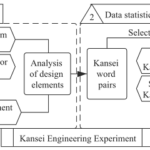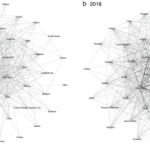
The flourishing world of e-commerce has brought convenience and options within our reach. But alongside legitimate businesses, social networks have become a breeding ground for a new kind of black market, costing governments billions in revenue losses.
Researchers at King Mongkut’s University of Technology North Bangkok propose a framework called Smuggler Hunting, Import Eradication, Legal Detection (SHIELD) to identify smugglers through unstructured data from social networks. They aim to harness the power of artificial intelligence (AI) to combat illegal online trade.
E-commerce: a double-edged sword
E-commerce undoubtedly benefits the economy in various countries by:
- Creating new business opportunities: Online platforms allow entrepreneurs and small businesses to reach a wider audience.
- Promoting foreign investment: E-commerce attracts foreign investment, boosting economic activity.
- Improving consumer choices: Consumers enjoy a wider variety of products at competitive prices.
While e-commerce provides legitimate businesses with a platform to thrive, it also opens doors to undervaluation, where sellers deliberately declare a lower value for imported goods, evading customs duties. This practice disrupts fair competition and harms the economy by:
- Reducing government revenues: Customs duties are a crucial source of income for countries, and their evasion directly affects public finances.
- Creating unfair competition: Companies that adhere to regulations face unequal conditions compared to those evading customs duties, hindering their competitiveness.
- Disruption of trade: Unpaid customs duties can cause delays in the clearance of goods, hindering smooth trade flow.
- Promotion of illegal trade: Undervaluation fosters an environment conducive to illicit commercial activities, further damaging the economy.
Social networks: a breeding ground for illicit activities
Imagine buying a designer bag online at a suspiciously low price. This could be a great deal, but it could also be a red flag. Social media platforms, while fostering legitimate trade, also provide a platform for individuals to sell products without proper licensing or customs clearance.
Social media platforms offer a convenient platform for online transactions but also pose a significant challenge for customs authorities. Individual sellers often use these platforms to circumvent regulations, making it difficult to track and trace their activities.
Introduction of the SHIELD framework: a proposed solution
This research presents SHIELD (Smuggler Hunting and Illegal Exportation Detection), a framework designed to identify and combat illegal online trade. Here’s how it works:
- Data collection: Millions of social media posts containing product listings are gathered from platforms like Twitter and Facebook.
- Text classification: The SHIELD system analyzes the text associated with these listings to categorize them.
- Red Line: This category flags contraband goods, unpaid customs duties, and prohibited or restricted items.
- Green Line: This category identifies non-commercial goods, such as personal items being sold.
- Inspect: This category highlights listings that require further investigation due to ambiguous information.
Machine learning to the rescue: the power of algorithms
SHIELD utilizes three powerful machine-learning algorithms:
- Logistic Regression (LR): This is a fundamental algorithm that establishes a relationship between text data and the desired category.
- Gated Recurrent Unit (GRU): This advanced algorithm excels in analyzing sequential data like text, allowing it to capture the context of the entire product description.
- Long Short-Term Memory (LSTM): Like GRU, LSTM excels in understanding context but is even more adept at remembering information from earlier parts of the text, leading to even more precise predictions.
Testing and results: AI proves its worth
The research team tested SHIELD using a massive dataset of social media posts containing product listings. The results were impressive:
- LSTM emerged as the champion: This algorithm achieved a remarkable accuracy of 99.44% in identifying illegal or suspicious activities.
- F1 Score: This metric measures a model’s balance between precision (identifying correct positive cases) and recall (identifying all relevant positive cases). SHIELD’s LSTM model achieved an average F1 score of 90.55%, demonstrating its effectiveness in capturing both types of information.
The future of fair trade in the digital age
The success of SHIELD paves the way for a future where AI can safeguard economic security:
- Improved border security: By integrating with customs systems, AI models like SHIELD can flag suspicious shipments for further inspection.
- Consumer protection: Consumers can benefit from increased transparency, knowing they’re not unwittingly purchasing illegal or counterfeit products.
- Level playing field: Legitimate businesses can operate on a fair playing field, free from unfair competition from illegal sellers.
Conclusion
The fight against illegal online trade is an ongoing battle. But with the help of innovative solutions like SHIELD, we can create a safer and fairer digital marketplace. By harnessing the power of AI and machine learning, we can empower authorities and protect consumers, ensuring a thriving legal economy in the era of social commerce.
Contact
Bundidth Dangsawang
Faculty of Information Technology And Digital Innovation, King Mongkut’s University of Technology North Bangkok, Bangkok, Thailand
Email: s6207011956031@email.kmutnb.ac.th
Siranee Nuchitprasitchai
Faculty of Information Technology And Digital Innovation, King Mongkut’s University of Technology North Bangkok, Bangkok, Thailand
Email: siranee.n@itd.kmutnb.ac.th
Reference (open access)
Dangsawang, B., & Nuchitprasitchai, S. (2024). A machine learning approach for detecting customs fraud through unstructured data analysis in social media. Decision Analytics Journal, 100408.





